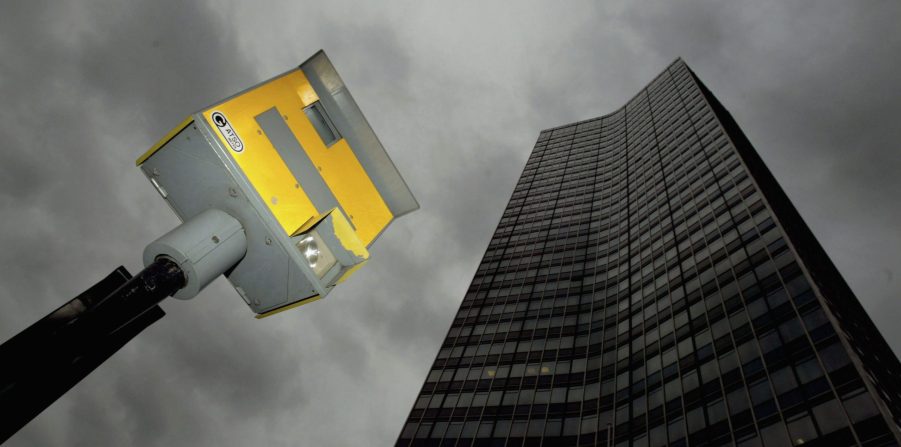
New Loud Exhaust Cameras Snap Picture and You Get Ticket
If your car or motorcycle has a loud exhaust, these states have cameras for that. They detect the noise, snap a picture of the offending vehicle, and automatically send you a ticket. Just. Like. That. Is this yet another way to rid the world of internal combustion engines? You decide.
Which states currently have noise detecting cameras?

There are two pilot programs currently running, one in New York, and the other in Knoxville, Tennessee. Once state Senate bill SB 1079 is signed into law, California will be the third. You knew Cali would be in on this, didn’t you?
Cities would choose where they want the “sound-activated enforcement” cameras erected. Signs will warn drivers when they enter one of the camera zones. The citation money would fund “traffic-calming” efforts like speed bumps and bike lanes.
What’s a fix-it ticket?

This follows on the heels of Cali already enacting tougher legal limits for exhaust noise starting in 2019. While leaving the acceptable noise limit levels where they were, enforcement became tougher. Instead of issuing a fix-it ticket, now you also got a fine.
Some equipment violations in Cali require only that the owner fix the violation. But there’s nothing in that for cities. But a fine helps build those city coffers, whether you believe in quotas or not. After completing the repair, you would get it signed off by the police. But not anymore.
What are legal loud exhaust levels?

California has a sliding scale for how it issues excessive noise tickets. The year and weight of the vehicle are factors. But essentially, anything under 6,000 lbs has a maximum limit of 95 dB. For motorcycles built after 1985, the cap is 80 dB. These are based on the Society of Engineers standard J1169. But with the new Cali camera proposal, there would also be caveats to enforcement.
Now, police officers can “exercise their judgment,” beyond any camera data. So, if you’re thinking that the cameras are used in lieu of the old way of catching noisy exhaust offenders, they’re not. Though participating cities have not been determined, six will be in the initial pilot program.
Can you get out of paying the loud exhaust ticket?

The good news is that first offenders revert back to getting only fix-it tickets. After that, cities are free to fashion their own fee schedules. These also include ways for those finding it a financial hardship to pay. That might mean payment plans, deferment plans, and hardship waivers.
If the state bill becomes law, it will not take effect until the first of the year according to Autoweek. With the Cali program being a fait accompli, the big question is what state or states will be next? How many cameras will cities and states get? And why, when speed cameras have fallen out of favor, are states now using the same technology for sound offenders? When we find out, we’ll let you know.



